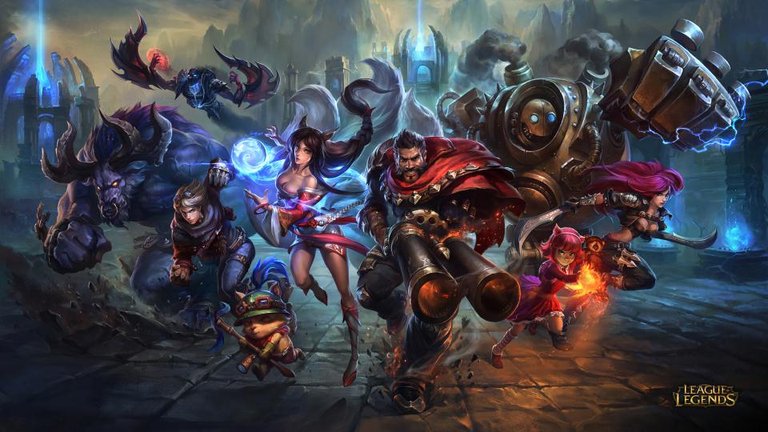Talking about eSports is talking about League of Legends, the most successful MOBA (online multiplayer arena) of all time. 100 million active players attest to this. This genre is a legacy of real-time strategy, in which a team must conquer the enemy's terrain and annul its towers and defense systems, something that goes back to board games on a map.
But there is a major difference: League of Legends was not born under the umbrella of any big name in the industry. It was created independently. For fans, to fans.

Riot Games was a small indie studio, born in Santa Monica, California, around the middle of 2006. Its first game, 'League of Legends: Clash of Fates', was presented in October 2008 with the expectation of launching it eight months later. But, as it grew in content, its authors assumed that what they had in hand was something much bigger.
And how is something so big built? The companies Benchmark Capital and FirstMark financed the first round with 7 million dollars. The following year, Tencent Holdings bet another 8 million, even was personally linked in this development until in 2011 it bought a majority stake in Riot Games, valued at more than 230 million dollars.
The success was resounding. Partly because of its business model (free-to-play with microtransactions) and partly because of its difficulty: LoL is rough, uncomfortable, full of options and few explanations. In LoL we are an invisible summoner taking control of a champion. Everything revolves around these champions: how we dress them, how we protect them. But to learn you have to try.
By this time, the free to play was little less than an entelechy. The games lived an exhausting wave of millionaire investments and an obsession with hyperrealistic graphics, while crowdfunding began to awaken and LoL became increasingly lighter and adaptable to old systems. That is to say: while some appealed to exclusivity, Riot wanted his game to be played at all costs. And he achieve it.

Thanks to its strong regulation, nowadays, League of Legends can be considered an international electronic sport. There are even specialized bars. There are already physical trainers and psychologists who actively collaborate with the players.
The progress is unstoppable. In countries such as South Korea, the KOC (Korean Olympic Committee) has officially recognized eSports as a second level Olympic discipline, similar to chess or karate. How does this affect? On athletes' visas, for example. 2024 is the date marked to take the League of Legends to the Olympics, postulated by the different organizations to the International Olympic Committee (IOC) itself.
There are also organizations to ensure the integrity of players, to avoid doping, such as the eSports Integrity Coalition, or to take care of their health, such as the recent movements of big clubs -Fnatic, SK Telecom T1 and ROX Tigers or G2 Esports-, where they already have a physiotherapy area in their staff, in addition to the usual gaming houses with access to their own gym.

Just as football is resized from its key figures, LoL is what it is thanks to its own names. The particular techniques of Leo Messi or the riffs of Cristiano Ronaldo, his key moments and hours go down in the trainings: there comes a point where the scene adopts the whole scene, not only of the game, but of the authors, the coaches, the entertainment of the post-confrontations, the quarrels, the disband and the screaming

[Fuente:]https://www.nobbot.com/pantallas/league-of-legends-cima-juego-competitivo/

Congratulations @haseonick! You have completed some achievement on Steemit and have been rewarded with new badge(s) :
Click on any badge to view your own Board of Honor on SteemitBoard.
To support your work, I also upvoted your post!
For more information about SteemitBoard, click here
If you no longer want to receive notifications, reply to this comment with the word
STOP